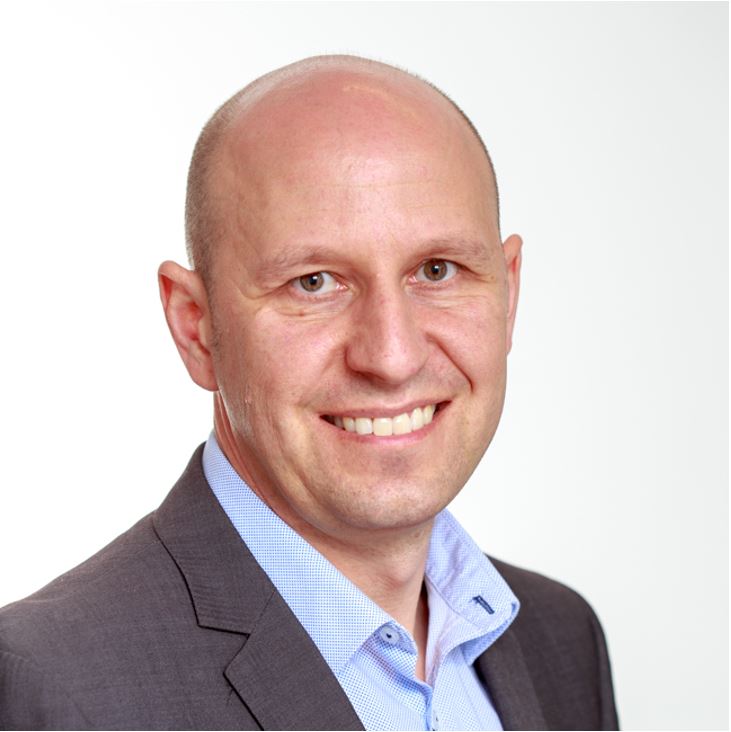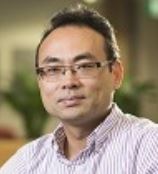Internet of Things (IoT) Committee
The Internet of Things (IoT) Committee within the Australian Computer Society (ACS) stands as a driving force in navigating the complexities and harnessing the opportunities presented by the IoT landscape. Comprised of experts, innovators, and thought leaders from diverse sectors, this committee is dedicated to exploring, advancing, and promoting the transformative potential of IoT technologies.
In today's interconnected world, the proliferation of IoT devices and systems is reshaping how we interact with our environment, from homes and cities to industries and beyond. The ACS IoT Committee recognizes the profound impact of IoT on various aspects of society and endeavors to facilitate its responsible adoption and deployment.
The primary mission of the ACS IoT Committee is to foster collaboration, innovation, and knowledge exchange in the field of IoT. Through strategic initiatives, research endeavors, and advocacy efforts, the committee aims to address key challenges such as interoperability, security, privacy, and scalability, while unlocking the full potential of IoT to drive economic growth and improve quality of life.
By fostering dialogue and knowledge exchange among stakeholders, the IoT Committee aims to facilitate innovation, drive economic growth, and enhance quality of life across various sectors. Whether it's optimizing resource management, improving healthcare delivery, or enhancing transportation systems, IoT has the potential to revolutionize how we live, work, and interact with our environment.
As stewards of IoT advancement in Australia, the ACS IoT Committee is committed to promoting ethical, sustainable, and inclusive practices. Through informed discussions, policy advocacy, and capacity-building initiatives, the committee aims to ensure that IoT technologies benefit individuals, organizations, and communities while upholding the values of integrity, security, and societal well-being.

MACS
Mr Tom Zorde
Chair – IoT Committee
Tom Zorde leads purpose driven communities to future-proof Australia for a changing digital world. He convened and lead volunteers to deliver a free-to-use wireless Internet of Things Communications Network for Western Australia which now enables entrepreneurs, academia, industry, rural and city councils. His efforts were recognised by the Australian Computer Society awarding the project the 2018 Digital Disruptor award for transforming skills of work teams 21 to 200 staff. In addition to launching the world’s first certified internet of things practitioner accreditation in compliance with ANSI/ISO/IEC 17024 standards, Tom is a respected leader nurturing collaboration across industry, government and academia, and is a sought-after advisor for organisations embarking on digital transformation. Twitter: @TomZorde LinkedIn:

MACS Snr CP GAICD
Mr Peter Runcie
Vice Chair – IoT Committee
Peter is an independent consultant assisting organisations with the development and implementation of digital and data technology solutions. Current focus areas include natural hazards, resilience, sustainability, and smart cities. He is the Natural Hazards and Smart Cities Lead for the NSW Smart Sensing Network. Peter has had previous technical management roles at CSIRO’s Data61, National ICT Australia, Avaya USA, Bell Laboratories, Woolworths, GIO Australia and several SMEs including as the CIO of a technology-based retail startup. Peter is an inventor on 29 granted international patents in voice and video communications, data networking and biometrics, civil engineering, and data analytics.
Peter holds an MBA (Exec) from the Australian Graduate School of Management and is a graduate of the Australian Institute of Company Directors. Peter is a member of numerous committees including the NSW Government Smart Places Advisory Council, City of Parramatta Smart Cities Advisory Committee, Australian Network for Structural Health Monitoring and Standards Australia Sustainable Cities Technical Committee IT-268.

AACS
Mr Dimitrios Georgakopoulos
Member
Dimitrios is currently a Professor of Computer Science in Swinburne University of Technology’s Faculty of Science, Engineering & Technology (FSET), and the Director the IoT Lab in the university’s Digital Innovation Capability Platform. He also lead the Industry 4.0 program in Swinburne’s Manufacturing Futures Research Institute. Before that he served as Research Director (2008-2014) of CSIRO’s ICT Centre and a Professor at RMIT University (2014-2016). At CSIRO he led the Information Engineering Laboratory, which was the largest Computer Science research program in Australia. Prior to joining CSIRO, Dimitrios held research and management positions in industrial laboratories in the USA, including Telcordia Technologies (where he helped found two of Telcordia’s Research Centres in Austin, Texas, and Poznan, Poland); Microelectronics and Computer Corporation (MCC) in Austin; GTE (currently Verizon) Laboratories in Boston; and Bell Communications Research (Bellcore) in New Jersey. He is also a CSIRO Adjunct Fellow since 2014. Dimitrios has (co)authored 190 journal and conference publications in computer science, which include 3 seminal papers in the areas Service Computing, Workflow Management, and the Internet of Things (IoT). Per Google Scholar, my publications have received 16,500+ citations. He served as the General or Program Chair of 20+ major international conferences. He has received 2 outstanding paper awards from the IEEE Computer Society for the best paper in the IEEE Int. Conf. on Data Engineering, and a best paper in the 2017 Hawaii Int. Conf, on System Sciences in Hawaii, USA. He also was the recipient of several IEEE CS service awards and GTE’s Excellence Award. In Australia, He's won 4 ACT iAwards and a CSIRO Plant Industry Divisional Innovation Award. More recently in Swinburne, he also received the 2018 Vice Chancellor’s Innovation Award and FSET’s 2019 Research Award. Dimitrios has attracted $42M+ of research funding from industry and various funding agencies in the USA, EU, and Australia.

MACS
Mr Matthew Schultz
Member
Matthew Schultz is a Partner and Company Director at Gravelroad Group and an Executive leader with expertise in all facets of next-generation connectivity including 5G, digital infrastructure, Smart City & Internet of Things, and data and AI driven digital strategy and delivery within high-profile operations. Matthew is skilled in collaborating within organizations and industry to achieve business, financial and service delivery objectives. Matthew is also CoChair of the World Economic Forum’s G20 Global Smart Cities Digital Infrastructure Taskforce, Co-founder and a past National President of the Australian Smart Communities Association and a member of the ACS National IoT Committee. He is also an inaugural Board Director of Open Data Australia, a member of Standards Australia IT042 Internet of Things Standards Development Committee and Standards Australia Smart Cities Advisory Group.

AACS
Prof. Michael Sheng
Member
Dr. Michael Sheng is a Distinguished Professor and Head of School of Computing. Before moving to Macquarie, Michael spent 10 years at School of Computer Science, the University of Adelaide (UoA). Michael holds a PhD degree in computer science from the University of New South Wales (UNSW) and did his post-doc as a research scientist at CSIRO ICT Centre. From 1999 to 2001, Sheng also worked at UNSW as a visiting research fellow. Prior to that, he spent 6 years as a senior software engineer in industries. Prof. Sheng’s research interests include Internet of Things (IoT), data analytics, Web technologies, and service computing. He has more than 370 publications and his research has been highly cited by his international peers. Prof. Sheng has been invited to give keynotes at a number of international conferences and served as Conference General Chair or Program Chair for several top international conferences in his areas. Dr. Michael Sheng is the recipient of the AMiner Most Influential Scholar in IoT award (2019), ARC Future Fellowship (2014), Chris Wallace Award for Outstanding Research Contribution (2012), and Microsoft Research Fellowship (2003).

AACS
Dr Neil Temperley
Member
Neil believes new technologies and emerging challenges such as sustainability demand a rethink of how we approach innovation. Vision- and goal-driven, customer-centric approaches should define our ideal outcomes and customer experiences and thereby determine the requirements for the new emerging tools such as AI and Blockchain but also determine our priorities for collecting, managing and leveraging data. He also believes in collaboration via Living Labs and clusters as a means to de-risk innovation and transform industry and government innovation cultures to be more effective and future-focused. Neil helped establish a cluster in embedded systems and then led NICTA's (later Data61's) Living Lab in Transport and Logistics. He now works as a consultant in a variety of innovation areas with a focus on smart cities, communities, and places. His website is www.smartercitiesnewwave.com.au.

AACS
Dr Liwan Liyanage
Member
Dr. Liwan Liyanage-Hansen’s academic journey began with First Class Honours in B.Sc. (Mathematics and Physics) from the University of Colombo in 1976, followed by an M.Sc. in 1978 and a Ph.D. in 1983 from the University of Wollongong, Australia. Since 1998, she has been a driving force in integrating data mining into education, advancing computational analysis for practical applications. She has successfully supervised over 10 PhD graduates, currently supervises 8 PhD candidates, and has authored more than 60 publications. With nearly five decades in academia, Dr. Liyanage-Hansen’s research is rooted in data-driven adaptive modelling for decision-making, with a strong focus on the United Nations Sustainable Development Goals (UN-SDGs), data integrity, and spatio-temporal data integration. She is known for pioneering "Data Pre-Processing for Imputing Data with Large Gaps," a technique that has transformed environmental sensor data analysis. As a member of the IFIP Climate Change Digital Technology Taskforce, Dr. Liyanage-Hansen represents both Australia and Sri Lanka, leading efforts to address digital technology gaps related to climate change. She also spearheaded a long-standing collaboration between Western Sydney University (WSU) and the University of Colombo, which has resulted in numerous exchanges, research grants, and projects, including the award-winning "Data-Driven Demand Response Modelling for Electricity Consumption in Sri Lanka." Additionally, she led a key workstream in the OPENAIR project, which won both the Healthy Planet, Healthy People Award and the IoT Research Award in 2024. Currently, Dr. Liyanage-Hansen is working with the National Science Foundation of Sri Lanka on the “Sustainable Recovery and Inclusive Development” initiative.
